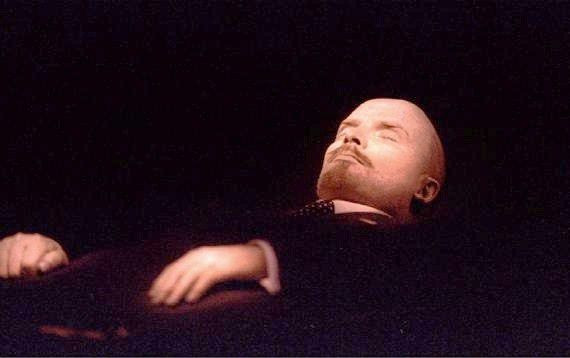Stress or Poison May Have Killed Vladimir Lenin, Not STD, Doctor Says

Vladamir Lenin, the founder of Russian communism, may have died because of stress, family medical history or of poison given to him by his political successor Joseph Stalin, opposing a popular theory that he died of sexually-transmitted disease syphilis.
Dr. Harry Vinters, a neurologist at the University of California in Los Angeles and Lev Lurie, a Russian historian, re-examined Lenin’s personal and autopsy records and clinical history for an annual conference on famous people's deaths at the University of Maryland School of Medicine, where the deaths of figures like King Tut, Christopher Columbus, Simon Bolivar and Abraham Lincoln were re-examined.
Lenin had died on January 21, 1924 at the age of 53. The Soviet leader had suffered several mysterious strokes before he died.
Lurie, the historian, believes that while Lenin was already experiencing bad health after having suffered several strokes, Stalin may have poisoned him after a bitter argument.
Lenin had initially supported Stalin’s rise to power, but he later began supporting Leon Trotsky. Lenin had criticized Stalin’s rude manners and ambitious nature, and he even suggested that the General Secretary of the Communist Party be taken from Stalin, according to notes Lenin had written shortly before his death.
Lurie pointed out that poisoning would later become Stalin’s favored way of taking out his enemies.
"The funny thing is that the brain of Lenin still is preserved in Moscow, so we can investigate," Lurie told AP.
The widely accepted theory was that Lenin had died from the sexually-transmitted disease syphilis, and his preserved body is still on public display in a Red Square mausoleum, even almost two decades after the collapse of the communist state.
Dr. Vinters, the neurologist, proposed a separate theory, that stress or a family medical history could be responsible for Lenin’s death.
Lenin’s health had been growing worse over time, he had suffered three strokes in the last years of his life, which left him partly paralyzed and rendered him mute and bed-ridden until he died.
An autopsy found blood vessels in his brain were extremely hardened, which was strange because he was young and because he had none of the important risk factors, said Dr. Philip Mackowiak, who organizes the yearly event, according to AP.
Mackowiak said that Lenin didn’t smoke and he never even let smokers near him, the communist leader didn’t have diabetes and wasn’t overweight. His autopsy did not find evidence of high blood pressure wither.
At the time, there was “considerable suspicion” among Russians that syphilis was the blame, according to Mackowiak. Lenin had been treated for syphilis using medications available at the time, and while the STD can cause strokes, Lenin’s autopsy did not find evidence for syphilis.
Vinters said family history combined with stress may have played a role in Lenin’s death. The ex-Soviet leader may have been predisposed to hardening of the arteries and stress is also a risk factor for strokes.
"People were always trying to assassinate him, for example." Vinters told AP.
After reviewing Lenin’s autopsy records and clinical history, Vinters said that no toxicology tests, which might have revealed if the leader had been poisoned, had been conducted.
Lenin had been active and talking a few hours before he died, according to the reports.
And then he experienced a series of really, really bad convulsions which is quite unusual for someone who has a stroke,' Vinters said.
Published by Medicaldaily.com



























